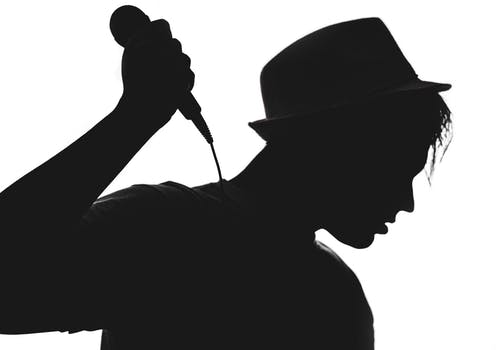If you are a singer or someone trying to improve your vocal performance, then you should definitely avoid decaf coffee.
This is because coffee dries up your vocal cords making it nearly impossible to sing properly.
Also coffee can cause anxiety which alters your singing or even cause you to deliver a terrible singing performance.
There are certain foods and drinks to take before singing, like I mentioned in this article here but decaf coffee is definitely not one of them
If you have dreams of putting your vocal cords to work and want to become a great singer, then stay away from decaf coffee and even coffee in general.
Is Coffee Good for singing?

Before we look at the effects of coffee on singing, let’s take a look at coffee and some of its effects on the body
People metabolize caffeine at different speeds
For some people it might happen as fast as possible, while for others it takes quite a long time and might be completely metabolized.
And it’s been discovered that half of everyone are slow metabolizers of caffeine.
So what this means is that with the caffeine in your system, you are going to experience jitters, heart palpitations and feel jazzeds up for up to 9 hours after taking coffee.
Now I do not need to tell you what happens and how you feel when singing in such a condition.
The other half is “fast” metabolizers of caffeine. They get energy and increased alertness and are back to normal a few hours later.
This is part of the reason those headlines contradict each other so much – because we’re all different!
The effects of coffee (and caffeine) on the mind and body
NOTE: Most studies look at caffeinated coffee, not decaf.
The effects of coffee (and caffeine) on the mind and body also differ between people; this is partly from the metabolism I mentioned.
But it also has to do with your body’s amazing ability to adapt (read: become more tolerant) to long-term caffeine use.
Many people who start drinking coffee feel the effects a lot more than people who have coffee every day.
Here’s a list of these effects (that usually decrease with long-term use):
- Stimulates the brain
- Boosts metabolism
- Boosts energy and exercise performance
- Increases your stress hormone cortisol
- Dehydrates
So, while some of these effects are good and some aren’t, you need to see how they affect you and decide if it’s worth it or not.
As a professional singer and audio engineer for years, I will advice that you skip taking coffee before any singing performance – either in the studio or on stage.
Related: Check out this article I wrote on the effects of cold water on your voice
Does Caffeine make my voice hoarse?
First of all, it’s addicting.
Missing even one coffee a day can result in withdrawal symptoms of headaches, drowsiness, and loss of concentration.
Since caffeine will solve those problems, it can become habitual to turn to caffeine to solve symptoms rather than deal with the underlying problem.
Caffeine can also cause feelings of panic or anxiety depending on the person and amount.
Especially alarming for singers, it can cause dehydration and changes in voice quality.
The body is a singer’s instrument and needs water.
Without water, kidneys don’t function, blood supply to the brain is reduced (in extreme dehydration it can even lead to a coma), and you may feel lightheaded, nauseous, and weak in severe cases.
With just moderate dehydration, you may have a headache or feel tired.
It also can stop the production of mucus, which reduces the flexibility and responsiveness of the vocal cords.
Also check out this article I wrote on the effects of smoking weed as a singer
Hydration and Dehydration
To rehydrate, the liquid needs to go through our entire system.
It may feel like liquid touches the vocal cords directly when swallowing, and it does have a lubricating effect, but it is not lasting.
Drinking eight glasses of water a day may or may not be the right amount for you.
If you consume caffeine, it may also alter your ability to hydrate your body.
Simply drink enough that your urine is neither dark nor odorous.
You should also urinate at least four times a day.
There is a correlation between dehydration and caffeine consumed in large amounts equivalent to 3-4 Red Bulls or 2-3 cups of coffee (250-300 mg).
The effect is a need to urinate and the result is dehydration.
Studies show, however, that regular caffeine consumers form a tolerance to caffeine.
Results of Studies on Caffeine and the Voice
One pilot study took eight volunteers and tested their voice quality before and after they consumed 250mg caffeine tablets and found voice quality was reduced.
The degree of the effect varied between participants.
Another study of 58 females ranging between 18-35, with half given a 100 mg caffeine tablet and another half were given a placebo, found no variables between groups in terms of vocal acoustics and aerodynamics a half hour after ingesting the pill.
A group of 16 healthy adults participated in two sessions where they consumed 480 mg or 24mg of caffeine.
They found no significant difference in the voice’s ability to deal with prolonged speech between the two sessions.
Conclusion
Studies show that for regular consumers, caffeine neither dehydrates the body nor has a negative effect on singing.
However, if you are a vocal student with juries and exams crammed near the same time, turning to caffeine pills to help prolong study hours for just a short period of time is probably a mistake.

